|
By Heather Two weeks ago a friend of mine asked me whether I was still calorie counting. Just prior to my wedding last year I had been monitoring my consumption closely to make sure my dress fit on the day but calorie counting stopped the moment I said, I do! What surprises my friend is that I have maintained my new weight nevertheless and she wanted to know exactly how. I referred her to the Fat Creep™ forum and told her that I practice most of what I preach. Here are six tips that you could benefit from too.  yourfitnesspartner.info yourfitnesspartner.info 1. Feeling full is overrated: just try to eat the recommended portion To maintain my body weight I know that I can only eat a given number of calories per day. With this view in mind I started ensuring that I only put on my plate the quantity that I SHOULD eat not the quantity that I WANT to eat. Since I always underestimate the quantity when I measure with my eyes, I tend to weigh the carbs: breakfast cereal, rice and pasta to make sure I eat the right amount. If after the meal I still feel hungry I fill myself up with very low or no- calorie stuff: water, carrots, celery, tea, coffee and so forth. Dieticians are always on about portion control and I finally decided to listen. It’s an everyday struggle but I try.  2. 2000/2500 calories per day is an average! I have experienced fat creep a fair few times in my life. Each time, after I finished shedding the excess I reverted to consuming about 2,000 calories per day to stay constant. Then I would experience more fat creep. It didn’t make sense until I realized that I burn less than 2,000 calories in an ordinary day! You will read that women need 2,000 calories per day and men 2,500 but these are just average figures; those of us with sedentary jobs don’t consume much energy at all. I worked out what I burn when I am at rest: my basal metabolic rate (BMR) and I don’t eat much more than that if I’m not planning on exercising that day. Here's an article to help you calculate your BMR. After I stopped counting calories I didn't lose the knowledge that I had already acquired on the type of foods that take me over the 'eating limit'. I eat less of those. 3. At restaurants, dump some of your food onto another plate and don't eat it! You don't have to eat everything that is delivered to you even if you feel guilty about wasting food! This is especially true in the US where restaurant portions are 3, 4 or more times what they should be. It's very hard to stop eating something that tastes great so the best solution is always to remove it before you start. That way you avoid the temptation. 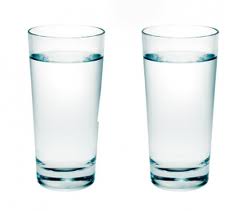 4. Drink two glasses of water before every meal - eat slower, eat less When I am very hungry I eat extremely fast and therefore take in a lot more food than when I approach the meal with a normal level of hunger. For almost a year now, just prior to every main meal, I have two 250ml glasses of warm water. Sometimes with lemon squeezed in them. The lemon adds flavor to the water making it a lot more drinkable and some say it has a cleansing effect on the body. I drink my water warm just because I like it that way, I figured that the enzymes in my stomach are accustomed to working at a given temperature so I don't want to shock them with freezing cold water. The water regime works wonderfully; a) it reduces my appetite and b) it helps me to eat slower and hence eat less. It has become so habitual that now I do it in restaurants as well, at times I get a strange look but hey, who cares, right? An alternative to hot water is a peppermint or green tea, they also suppress appetite. 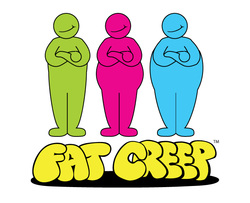 5. Do NOT shop on an empty stomach You will always throw more junk into your shopping cart if you are hungry. When you’re full, your shopping trip will be faster, more efficient and you will not be as attracted to high calorie snacks. Have you noticed a difference in your shopping behavior when you are full versus hungry? 6. Weigh yourself regularly, at least once a week Research by the National Weight Control Registry in the USA has shown that 75% of those that manage to maintain weight loss following a diet weigh themselves at least weekly. This is what the Fat Creep™ weight tracker is all about. It makes sense that regular weigh-ins will help you to catch and react to weight gain as soon as it starts to happen. My weekly weigh-ins are the key reason for staying slim. When I'm slightly up I know I need to eat better. I track weekly without fail. More tips on the forum. 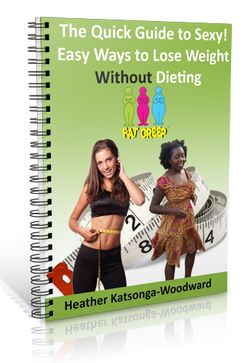 Although your personal finances and your business success are my primary interest, I believe you only operate at peak efficiency when you're fit and healthy. If you feel good, it filters through to your work. To help you with that, click for your free ebook: The Quick Guide to Sexy
0 Comments
By Heather Let’s face it. Moving from one place to another is one of the least time-efficient things that human beings have to do. If you could just teleport everywhere you would get a lot more done in a day. This is the issue that I struggle with when people advocate the health benefits of walking as Dr Harry did in this blog a couple of weeks ago. 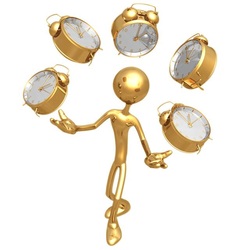 Source: thejfblogit.co.uk Source: thejfblogit.co.uk I will go for a walk with my husband because that’s one of the times we have a proper talk but other than that, I think walking is time-inefficient, a complete waste of time because I already have more to do in a day than I can actually get through. Two weeks ago that all changed. I had heard of audiobooks but I hadn’t ever listened to one because I still prefer to read my books and importantly the whole process of downloading and syncing to your phone just seemed lengthy. Then I learnt about Audible.com and Audible.co.uk. Audible is the biggest “store” of quality audiobooks. At first, I was turned off by the fact that you have to pay a monthly subscription of £7.99, however, when I discovered that the payment entitles you to a book every month I warmed to the idea. There are different subscription options, however, the one I chose gave me one “credit” (or one book) a month and I can use the credit to buy any book even if it’s more expensive than that. The first book I chose, The Lean Startup by Eric Ries, one of the best sellers, is £20.59 and I got it free-of-charge just for signing up. The books are wirelessly transmitted to one’s phone.  If you look at the price range of audiobooks, many of them actually cost more than £7.99 (especially the business books) so I signed up right away and I am already on my second book. The second book cost £14 because I had used up my free monthly allocation. The more I listened and walked, the more I bought into the whole audiobook thing so this morning, I changed to the 24 book subscription which cost me £110, that’s £4.58 per book, cheap as chips. My husband says I’m the only one who can spend money just walking but hey, education comes cheap. With this efficiency gain, I have fallen in love with my walking. My walking time is also my reading time and to me there are very few things in this world that are more important than reading whether it’s fiction or non-fiction that you prefer. I am learning as I walk and at the moment, I plan on going for a walk for at least one hour everyday, that's over 6,500 steps per day just in my daily consitutional. I am efficiency obsessed and without the discovery of audiobooks I would have been so much less inclined to take an hour off every day just to walk. So, this is my recommendation. Sign up to Audible, get a pedometer to figure out how much you're actually walking and get walking. Note: I am not getting paid in any way for suggesting this to you! 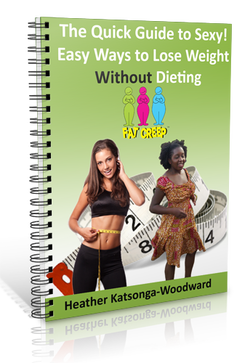 Although your personal finances and your business success are my primary interest, I believe you only operate at peak efficiency when you're fit and healthy. If you feel good, it filters through to your work. To help you with that, click for your free ebook: The Quick Guide to Sexy  I’ve been wanting to tackle this issue for quite a while now. If you look at my Facebook "Info” page you will notice that there is one key piece of data missing that everyone else seems to have displayed: my birthday! There’s a special reason for this. In addition to thinking that it’s not very relevant to anything, I also abhor the idea of people saying ‘happy birthday’ to me on my wall. I’m not going to pretend that I have never done this myself but I think it’s firstly, lazy and secondly, so low effort that it means almost nothing to the recipient. When you see birthday messages on your wall from 100s of people do you sit there thinking, “Aren’t I popular, look at me, I’m a person of the people, loved by many…” You really shouldn’t; those message are very low delta. People write them almost on autopilot: rapidly drafted without the writer even thinking that it is YOUR birthday. They probably write exactly the same thing for other people. They might even have a message they just copy and paste from one wall to the next! Furthermore, wishing someone happy birthday on their Facebook wall can’t be used as a means of ‘showing off’ that you remembered their birthday because the fact is, you did not. Facebook alerted you to the event and you took out 15 seconds from your precious day to write on the person’s wall. If I care about and appreciate someone and assuming I haven't forgotten(!), I will make contact with them via the email, text, telephone or the Facebook INBOX. I will let them know what I wish for them on this special day and I’ll find out what they have planned for the day. If I write on your wall and you haven’t also received a message via one of the aforementioned platforms, I am probably not that into you. This probably applies to all the other folk that wrote on your wall. Let’s think about this in a real life context Assume you live in a little village where a birthday-board is put outside people’s doors on their birthdays. Would you just walk past and scream happy birthday across the fence? I assume you wouldn’t. You would probably enter the front lawn (their personal space) for a short while have a quick chat then be on your way. You might even give the birthday guy or gal a small gift – a fresh banana or peach from your land, a handmade card or simply a pleasant wish. The Facebook inbox or email inbox is such an intimate place. If you are going to send someone a personal wish you have to think a little about it. It’s less transient and that is exactly why most people don’t do it. This year, I am going to do something different. I will put my birthday up on Facbook a week before my birthday and simultaneously disable my wall. I would really like to see how many people take that perilous journey to my inbox. Why don’t you try the same, if I get even 10 messages, I would rate that as doing very well and I will respond to each message in turn: a personal message deserves that respect. By Heather Have you ever considered how many calories are in your glass of wine? Luckily, my husband and I don’t drink much but even we are fans of mulled wine. According to this article by The Telegraph, the average wine drinker puts on 7lbs (or 3.2kg) every year by virtue of their wine drinking. So, how many calories are we talking about exactly? Using a list of popular red and white wines from icohol.com, I did a little research the results of which are presented below. My wine glasses which look pretty average to me take about 150ml (5.3 ounces) so all the below numbers are based on that volume.
 So there you have it. The next time you have a glass of wine know that you are adding about 130 calories to your meal. If you have three glasses, that’s almost 400 calories. Just to put that in perspective, 400 calories is what I target to have for my entire lunch. If you like to round your meal off with a few glasses of red port, a wine glass’s worth of consumption will add another 250 calories to that sumptuous meal. Of course, some say red wine has health benefits, however, that is an entire subject on its own to be tackled in another blog. 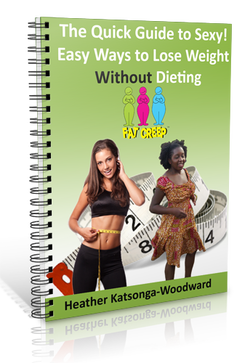 Although your personal finances and your business success are my primary interest, I believe you only operate at peak efficiency when you're fit and healthy. If you feel good, it filters through to your work. To help you with that, click for your free ebook: The Quick Guide to Sexy 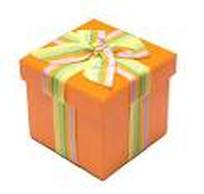 Organization The pace of modern life means you need to be able to juggle many things at one time without stumbling, getting confused, angry or annoyed. Tall order? Yes, it is. Presentation, packaging The comments on this article are even more interesting and insightful than the article itself. One anonymous comment reads: “My son recently went for a minimum wage menial job interview. He dressed smart casual - no jeans, ironed shirt, neat haircut and the rest. He didn't get the job but at least the manager took the time to write to him and commend him on his appearance and enthusiasm in the interview.” That’s just it, right? If you receive a gift that’s been neatly wrapped and ‘ribboned’ you will take more interest in it that a carelessly packaged box wrapped in newspaper. The same applies at interviews. Even if you are applying for a low-skilled job dress smartly, smile and act enthusiastic. The very fact that this employer took the time to commend the young man for his presentation shows he was pleasantly surprised. Overall, I would say that if you are highly numerate, literate, fluent, learned, disciplined, organized and well-presented and you still can’t find a job, it’s possible that it’s because you isblack! Whatever the case stay positive. 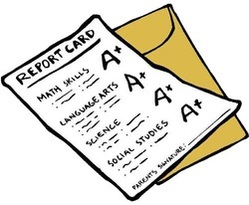 www.instructables.com www.instructables.com Academic profile Nowadays so many people have great GCSEs, great A-levels and a university degree so if you don’t have the same, it will count against you. Discipline A couple of boys admitted to having a criminal record. One paragraph in the article read: "'I’ve been looking for a job for almost seven years,' says Gogo, 28, who served three years in jail in his teens for what he describes as a number of small offences. 'I would take any job, I don’t really care, I’ll take any job — but once you get a criminal record, even a minor criminal record, it’s hard to get any jobs.'" Let’s be honest, if you were about to employ someone you would want some sort of signal that they are disciplined, right? That they will get to work on time, that they won’t be dishonest and overall that you can trust them to do right by the firm. In times of such high unemployment, when employers can afford to be picky, they will take a criminal record as a ‘signal’ of poor discipline. If someone has a criminal record the best they can do is admit to it before it’s ‘discovered’ and try to explain it away. If an employer discovers the record on their own they are more likely to think you lied than if you are upfront about it. Everyone knows that having a criminal record does not in itself mean you’re a bad person but it’s part of your profile and as such indicates something about your character. Like as not, the signal is not usually a positive one although rarely it can be (see Nelson Mandela). Most applicants competing for the same job will not have a criminal record.  On 26-Mar-12 the Evening Standard produced a highly emotive article about the unemployment levels of young black men:Young, Black and Shafted. The interviewees were all from the low-income neighborhood of Dalston. Personally, I don’t think that this story reflected the unemployment levels of black people from wealthier and more educated neighborhoods. Growing up in Malawi, the concept of race and racism almost never traversed the contours of my brain. As a result, when something bad or negative happens to me, I almost never think of it as “racism”. I don’t argue that racism does not exist but I think this article lacked balance because it left some important areas unexplored. It entirely focused on race rather than the issue of: what are employers looking for and are these qualities lacking in the interviewed cohort? What is it that these lads can do to make themselves employable? And, if you can’t find a job, have you thought of creating one? I want to tackle the issue of employability in this blog. WHAT EMPLOYERS WANT: Numeracy You don’t have to be a super mathematician but basic mathematical skills are needed in almost any job. I am not talking about simply adding up but being able to understand ratios, proportions and if you are in a desk job formulae in Microsoft Excel. A surprising number of people are severely lacking in this area. If it can’t be done on a calculator, they get stuck. Literacy and Fluency Being brought up and bred in Britain doesn’t immediately imply an ability to fluently speak in English. Many people’s grammar is all over the place. Hand them a piece of paper and ask them to write something and in the absence of a spell check the piece is riddled with spelling errors. It's also likely to have misplaced commas and full stops, a poor flow as well as an incoherent structure. If the job involves writing to and communicating with clients this simply cannot do! You need to speak and write well, your grammar needs to be in check and you have to space your paragraphs. Effective communication is a must. I understand that a top City law firm had to provide elocution lessons to a few of their new graduates because customers complained about their Estuary English. 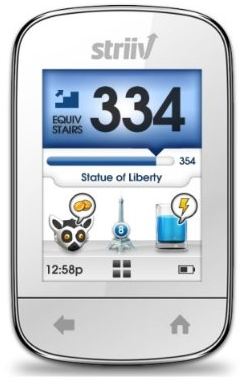 By Dr Harry I took up an offer for a free pedometer as part of the Living Streets Walk to Work Week initiative. It’s a simple enough device which I clip onto my belt. Apart from a few questions from colleagues, it’s very easy to forget about. After calibrating the pedometer to measure the steps I take, it tallies the number of steps taken from 0 to 99999 then starts again from zero. This little free device can also tell me the distance I have walked and calories burned after setting my height and weight details with a click of a button. It’s not very sophisticated, but I like to see how much walking I actually do compared to how much I think I do. On the first day I wore it I was quite disappointed that I was only walking about 7,500 steps per day. I was really busy at work and thought I was a lot more active than this! The next day was not much better – 7,800 steps. The following day I was working a 12 hour shift. When I got home (exhausted!) I was surprised that my steps had smashed through the 10,000 barrier to 12,500 steps! I don’t know why 10,000 steps was such a milestone, but it felt like a goal that should be achievable which is why I was initially upset at having walked less than this. It turns out that the Japanese have been using pedometers for years. Back in 1961 researchers determined that people took on average 3000 – 5000 steps per day. The “10,000 Steps a Day” campaign was born as a public health initiative. Each Japanese household apparently owns 3.1 pedometers! I took my pedometer with me when I went walking over the weekend. On a 45 minute stroll around the neighbourhood, I added about 5,000 steps. That’s about 110 steps per minute, which is a decent walking pace. This is the equivalent to most people’s average steps per day. On the Sunday I took a longer walk, and was astonished that I had walked 12,000 steps in 1 hour 45 minutes – almost as much as the gruelling 12 hour shift! This hit home how easy and effective reaching the 10,000 steps per day barrier is. If I walked an extra 30 minutes per day – during my lunch hour or to and from work I could easily add an extra 3000 steps to my day (increasing my baseline of about 7,500 to over the 10,000 steps per day, my target). In fact at my walking pace (about 110 steps per minute) I would be walking 3300 steps every half an hour. Having a pedometer has made me try to do more things to rack up more steps – like taking the stairs instead of the elevator, or running up a moving escalator instead of standing still. In fact anything to move more! I will also happily get off the train at the stop before my station if I see my target for the day has not yet been reached. It has been a surprisingly good motivator. With iPhone and Android apps taking advantage of accelerometer technology you can freely and easily get access to even more accurate activity-level monitors than the simple pedometer that I have. And even more sophisticated products exist such as Nike’s sport band, or the Fitbit which can monitor your activity levels, use GPS to track your movements, even tracking stairs climbed. These devices even allow you to synchronise with your computer or join a community of like-minded people to gain extra motivation or share experiences. Even the Walk to Work initiative aims to sign people up and from different workplaces to compete for the title of “Fittest Workplace” or “Most Steps Walked”. It’s a nice idea to get the public more aware of the health benefits of walking and having a pedometer is a good way to track your activity level objectively over time. Check out Amazon.com and Amazon.co.uk for a pedometer that suits you. What do the steps you take per day say about your activity level? 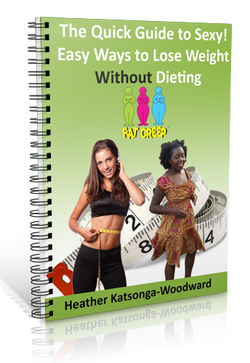 Although your personal finances and your business success are my primary interest, I believe you only operate at peak efficiency when you're fit and healthy. If you feel good, it filters through to your work. To help you with that, click for your free ebook: The Quick Guide to Sexy |
By Heather
|
Heather Katsonga-Woodward, a massive personal finance fanatic.
** All views expressed are my own and not those of any employer, past or present. ** Please get professional advice before re-arranging your personal finances.







 RSS Feed
RSS Feed


